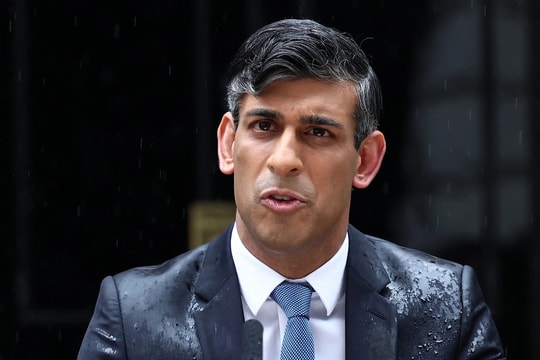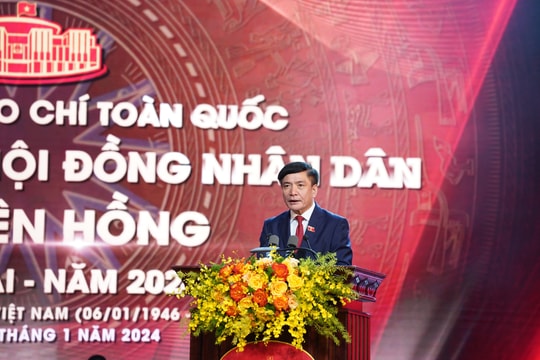Iran's General Election: A Difficult Test for the President!
(Baonghean) - Last weekend, the Islamic Republic of Iran held an important general election to elect 290 new members of Parliament for a four-year term.
According to observers, this is considered a difficult test for the reformist and moderate coalition of the current Iranian President Hassan Rouhani's administration, in the context of the upcoming 2021 presidential election. At the same time, the results of this general election are also considered to have a significant impact on Iran's political life and foreign policy, especially the Iran nuclear deal and the already troubled US-Iran relationship.
 |
| A polling station for Iran's parliamentary election in the capital Tehran on February 21. Photo: AFP |
Turn the tables
In contrast to the atmosphere of the Iranian parliamentary election in 2016, which saw a resounding victory for the first time in 12 years for the moderate and reformist coalition, the situation in this year's general election in Iran has completely changed. Right before the election, observers commented that this general election was a fierce race between the conservative faction supporting former Tehran Mayor Mohammad Bagher Ghalibaf and the moderate and reformist faction of current President Hassan Rouhani.
And it is no surprise that according to preliminary results released by Iran's Interior Ministry, those loyal to the hardline policies of Supreme Leader Ali Khamenei are likely to win a majority in Parliament. Although the final official election results will have to wait until this week, the fact that voters' attitudes towards the factions in Iran's political scene have been clearly revealed over the past time has not yet had to wait for the general election.
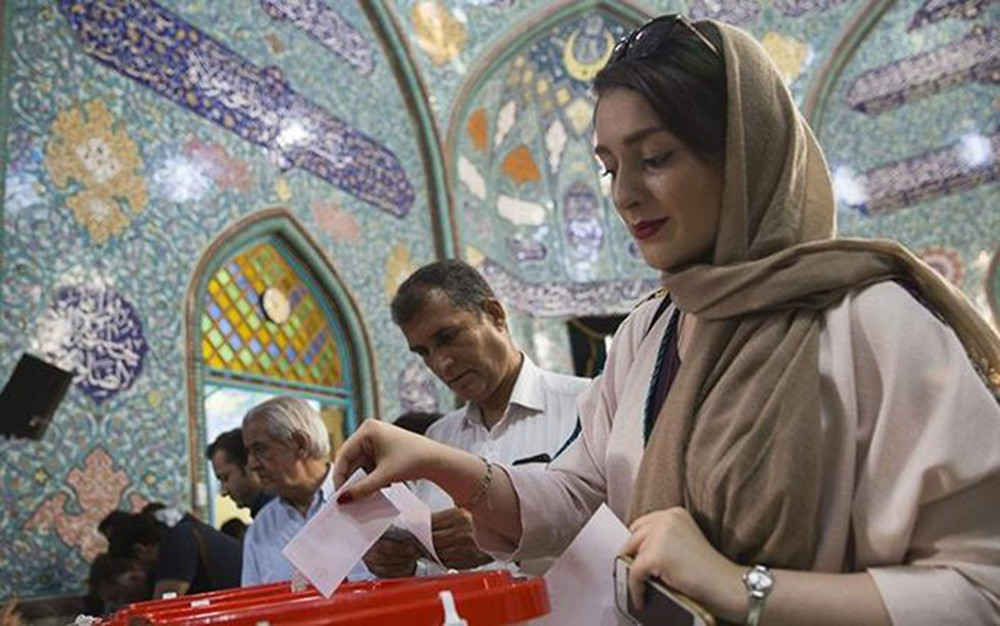 |
| Iranian voters cast ballots in parliamentary elections. Photo: Foreign Brief |
Looking back at the 2016 parliamentary elections, President Rouhani's moderate, reformist coalition was strongly supported by the people because the Tehran government at that time had just reached a historic nuclear agreement with the world powers. After many years of isolation and sanctions, Iran seemed to be beginning to loosen up and open up to cooperation with the outside world. In addition, since being elected to the first term as President in 2013, Mr. Rouhani himself has continuously made commitments to reform the economy and social life.
Iranian voters at that time were extremely hopeful about the “victory of moderation” over extremism - which had been dominating the country for many years. Expectations and beliefs were also the motivation for voters to continue voting for Mr. Rouhani in the 2017 presidential election. However, Mr. Rouhani’s easy overwhelming victory for a second presidential term did not come with the realization of people’s expectations.
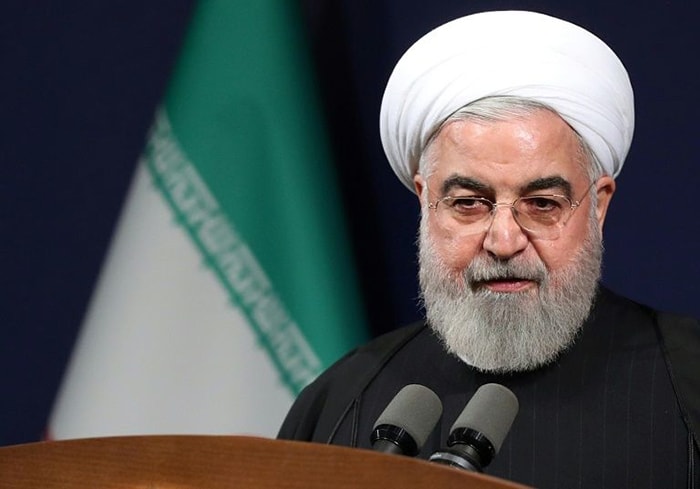 |
| Iranian President Hassan Rouhani and his moderate, reformist coalition are facing opposition and criticism from the Iranian public and politicians. Photo: AFP |
After nearly two presidential terms, Iranian voters have expressed complete disappointment with the Rouhani administration when witnessing the poor economy, international sanctions continue to weigh heavily on the Islamic country, causing Iran's economy to fall into a difficult situation, inflation up to 33.5% and growth down at least 6%. Meanwhile, relations with the US and the West not only did not improve but also escalated tensions along with domestic and foreign policies that were considered wrong.
The peak of the discontent was the nationwide protests against the government's policy of increasing fuel prices that broke out at the end of last year, with the participation of millions of people. Moreover, this general election of Iran also took place in the context of the country facing many serious problems, such as the Covid-19 epidemic that killed at least 6 people; or the incident on January 11 when Iran admitted to accidentally shooting down a Ukrainian airliner, killing all 176 people on board. The incident fanned the flames of anti-government sentiment, especially after the death of General Qasem Soleimani - a symbol of the power of the Islamic State. It is worth noting that the incident is considered a consequence of escalating tensions in US-Iran relations under President Hassan Rouhani, sparking strong "anti-American" sentiment throughout the country.
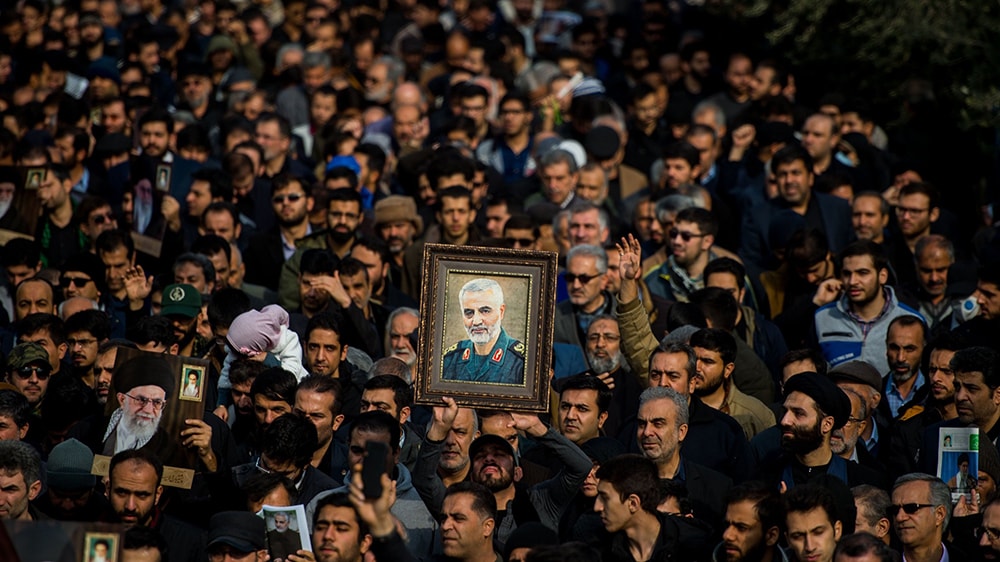 |
| Iranians remember General Soleimani after his assassination. Photo: New York Times |
The door is closing
Although the final election results will still have to wait for approval and ratification by Iran's Guardian Council, with a series of moderate candidates having been disqualified from running; coupled with the current Iranian social reality, the victory of the conservatives is almost certain. Many opinions believe that, in the event that the conservative coalition in Iran wins as predicted, the door will gradually close in the relationship between the US and Iran, with the historic nuclear deal and with the political future of President Hassan Rouhani personally, as the 2021 presidential election is approaching.
It should be noted that the Iranian Parliament is responsible for passing laws, approving the annual budget, ratifying international treaties and agreements, voting no confidence in ministers, and even impeaching the President. Of course, all laws will then need to be passed by the Guardian Council and approved by the President. However, according to observers, the victory of the conservative, hard-line faction in the Parliament will make it difficult for moderate President Rouhani to implement all decisions. From appointing cabinet members, approving economic and financial reform plans, etc. Inevitably, Mr. Rouhani has foreseen the disadvantages in the race for the position of President for a third term in 2021, although he has at least twice refused and rejected resignation under pressure from public opinion in recent times.
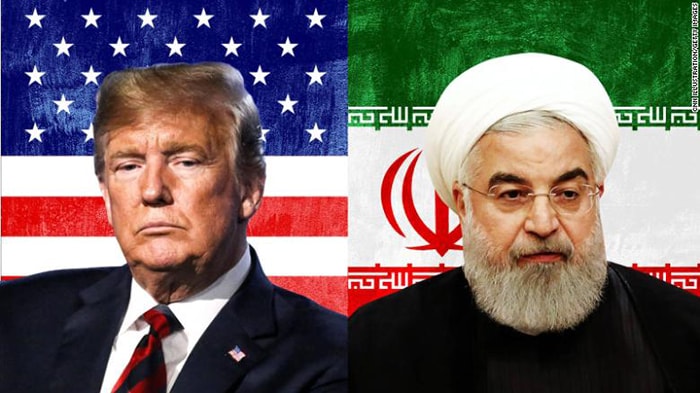 |
| US-Iran relations are expected to increase tensions if conservatives gain a majority in Iran's parliament. Photo: CNN |
In addition, although the National Assembly is considered to have a rather limited role in Iran's foreign affairs, it is clearly no coincidence that the US is exerting psychological pressure and imposing sanctions on Iranian officials right before the general election. Because once the conservative faction regains control of the National Assembly, the anti-American trend will be "revived", making US-Iran relations unpredictable. Even the historic nuclear deal reached in 2015 is likely to be broken by Iran itself, because the conservative faction will certainly not support any new negotiations between Iran and the West.
Not to mention, if the hardline trend returns, it will make Iran once again strict and wary of the world like a long period of "closed doors" before. This will certainly cause not only the US - Iran but also the relations in the Middle East, hot issues in the region with Iran's involvement to have unpredictable changes sooner or later!
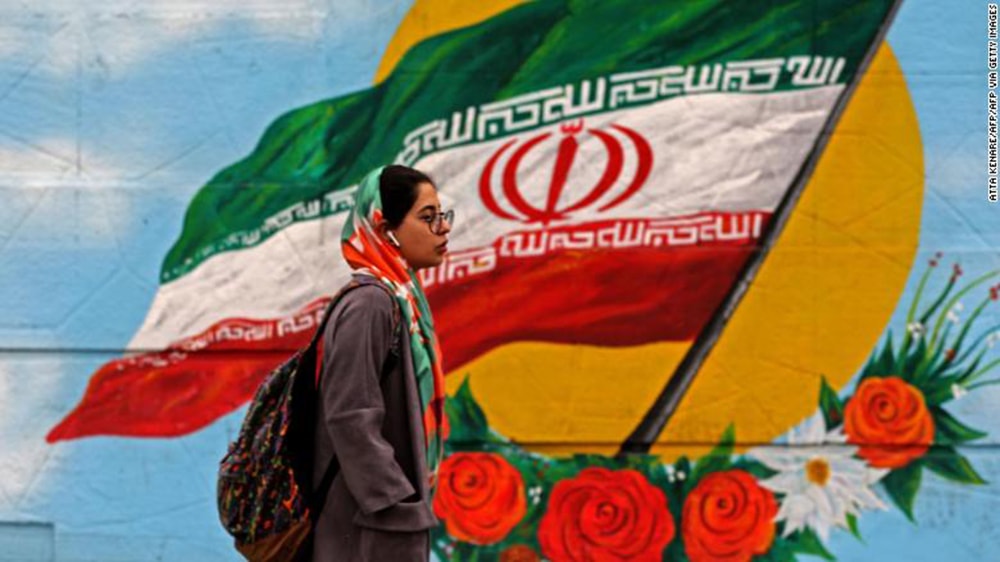 |
| Iranian people want change for a better life. Photo: CNN |

.jpg)




